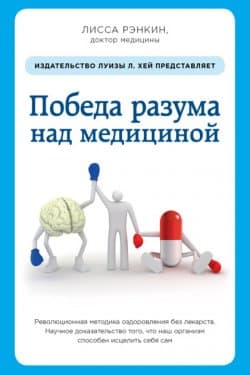Разум - Дэниэл Сигел (2019)
-
Год:2019
-
Название:Разум
-
Автор:
-
Жанр:
-
Язык:Русский
-
Страниц:201
-
Рейтинг:
-
Ваша оценка:
Автор книги рассказывает о своём исследовании происхождения человеческого разума. Он говорит о том, что разум не ограничен логикой и интеллектом, но и включает в себя чувства и мысли, способность к эмпатии относительно других людей и всей планеты.
Разум - Дэниэл Сигел читать онлайн бесплатно полную версию книги
Fair, D.A., Dosenbach, N. U. F., Church, J. A., Cohen, A. L., Brahmbhatt, S., Miezin, F. M., Barch, D. M., Raichle, M. E., Peterson, S. E., & Schlagger, B. L. (2007). Development of distinct control networks through segregation and integration. PNAS, 104 (33), 13507–13512.
Faraday, M. (1860). Course of six lectures on the various forces of matter, and their relations to each other. Delivered before a juvenile auditory at the Royal Institute of Great Britain during the Christmas holidays of 1859–60, William Crookes (Ed.). New York, NY: Harper and Brothers Publishers.
Farb, N.A.S., Segal, Z.V., Mayberg, H., Bean, J., McKeon, D., Fatima, Z., & Anderson, A.K. (2007). Attending to the present: Mindfulness meditation reveals distinct neural modes of self-reference. Social Cognitive and Affective Neuroscience, 2(4), 313–322.
Felitti, V., Anda, R.F., Nordenberg, D, Williamson, D.F., Spitz, A.M., Edwards, V., Koss, M.P., & Marks, J.S. (1998). Relationship of childhood abuse and household dysfunction to many of the leading causes of death in adults. American Journal of Preventive Medicine, Volume 14, Issue 4, 245–258.
Feng, E.H. & Crooks, G.E. (2008). Length of time’s arrow. Phys. Rev Lett. 101 (9): 090602.
Fredickson, B. (2013). Love 2.0: Finding happiness and health in moments of connection. New York, NY: Hudson/Penguin.
Freud, S. (1955). The standard edition of the complete psychoanalytical works of Sigmund Freud, (edited and translated by James Strachey). London, England: Hogarth Press.
Gambini, R. & Pullin, J. (2008). Free will, undecidability, and the problem of time in quantum gravity. Essay for Fqxi contest on the nature of time. www.Fqxi.org.
Gazzaniga, M. (2004). The cognitive neurosciences III. Cambridge, MA: MIT Press.
Gilbert, P. (2009). The compassionate mind: A new approach to life’s challenges. Oakland, CA: New Harbinger.
Gilbert, P. (2015). The evolution and social dynamics of compassion. Social and Personality Psychology Compass, 9, 239–254. doi:10.1111/spc3.12176.
Goldstein, B. & Siegel, D.J. (2013): The Mindful Group: Using mindbody-brain interactions in group therapy to foster resilience and integration. In D.J. Siegel & M.F. Solomon (Eds.), Healing Moments in Psychotherapy, (pp. 217–242). New York, NY: W.W. Norton & Company.
Gottman, J.D. (2011). The science of trust: Emotional attunement for couples. New York, NY: W.W. Norton & Company.
Graziano, M. (2014). Consciousness and the social brain. New York, NY: Oxford University Press.
Harrell, S.P. (2000). A multidimensional conceptualization of racism-related stress: Implications for the well-being of people of color. American Journal of Orthopsychiatry, 70 (1): 42–57.
Hassin, R.R., Uleman, J.S., & Baragh, J.A. (2005). The new unconscious. New York, NY: Oxford University Press.
Hattiangadi, J. (2005). The emergence of minds in space and time. In Erneling, C.E. & Johnson, D.M. (Eds.), The mind as a scientific object (pp. 79–100). New York, NY: Oxford University Press.
Hawking, S. & Ellis, G. (1973). The large-scale structure of space-time. Cambridge: Cambridge University Press.
Hensen, B., Bernien, H., Dreau, A.E., Reiserer, A., Kalb, N., Blok, M.S., Ruitenberg, J., Vermeulen, R.F.L., Schouten, R.N., Abellan, C., Amaya, W., Pruneri, V., Mitchell, M.W., Markham, M., Twitchen, D.J., Elkouss, D., Wehner, S., Taminau, T.H., & Hanson, R. (2015). Experimental loophole-free violation of a Bell inequality using entangled electron spins separated by 1.3 km. Nature, 526, 682–686 (29 October 2015) doi: 10.1038/nature15759.
Hrdy, S.B. (2009). Mothers and others: The evolutionary origins of mutual understanding. Cambridge, MA: Harvard University Press.
 Покорность Мишель Уэльбек
Покорность Мишель Уэльбек
 Поля надежды Александр Авраменко, Виктория Гетто
Поля надежды Александр Авраменко, Виктория Гетто
 Двери во Тьме Андрей Круз, Мария Круз
Двери во Тьме Андрей Круз, Мария Круз
 Победа разума над медициной. Революционная методика оздоровления без лекарств Лисса Рэнкин
Победа разума над медициной. Революционная методика оздоровления без лекарств Лисса Рэнкин
 Мысли, которые нас выбирают. Почему одних захватывает безумие, а других вдохновение Дэвид Кесслер
Мысли, которые нас выбирают. Почему одних захватывает безумие, а других вдохновение Дэвид Кесслер
 История мозга. 1640 фактов Стивен Джуан
История мозга. 1640 фактов Стивен Джуан

 Пир теней
Пир теней  Князь во все времена
Князь во все времена  Когда порвется нить
Когда порвется нить  Пока я здесь
Пока я здесь 



